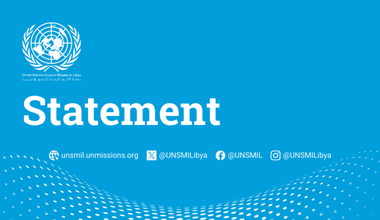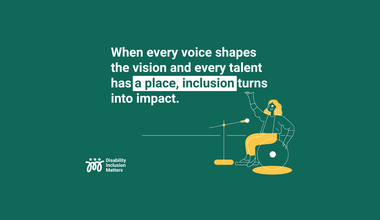Libyan Women Dialogue Track Meeting in Tunis, Tunisia, 21-22 April 2015
23 April 2015 - Representatives of Libyan women groups and women activists, from diverse backgrounds representing all areas of Libya, concluded a two-day meeting in the framework of the political dialogue with the aim of ending the conflict in the country. The Libyan Women dialogue track meeting, which convened in Tunis, Tunisia, on 21-22 April 2015, was facilitated by the United Nations Support Mission in Libya (UNSMIL) and with the support of the European Union.
At the conclusion of the meeting, participants affirmed their support for dialogue to bring peace and stability to Libya and called for women representations in all state’s institutions. At the end of the meeting, participants issued the following statement:
Voice of Libyan Women in the Libyan Political Dialogue
We, a group of Libyan women from inside and outside the country, have met within the framework of the meeting on the Libyan Women Track in Tunis on 21- 22 April 2015. We, female activists involved in public life from the East, West, South and North, declare our commitment to the following principles:
It is imperative to maintain the basic track of the dialogue in Skhirat as well as all other supporting tracks. We announce to our politicians that we are exhausted, that the displacement of our people abroad and their siege at home have humiliated our dignity and humanity, and that we have long yearned for the State. Therefore, we unanimously say Yes to a government of national concord along with all the necessary tracks to end the conflict. We, as well as our future generations, want to live in peace and experience development, while emphasizing the need to fight corruption in order to achieve the state of welfare and equal opportunity.
Within the context of a consensual dialogue that seeks to establish the State of Libya, we commit ourselves to the democratic option and affirm the path of law and renunciation of violence and terrorism.
Aware of the importance of the role of women in the peace-making process, as well as the danger that threatens the unity of the country, endangers the security of its citizens and wastes its wealth,
Believing in the efforts of the various parties involved in the political dialogue and its various tracks aiming at finding a solution to the crisis of the country and bringing peace,
Underscoring the inclusion of our issues at this critical stage, and
Based on the principle of citizenship and participation of women in the development of the peace process and building of the democratic State of Libya, the state of institutions, law and respect for human rights,
We have pledged and accepted the following tenets that unite us as Libyan women:
- No going back on the democratic path
- Yes to dialogue, no to terrorism and violence
- Yes to a government of national concord
- Yes to peace and development, No to corruption
- Yes to a meaningful media, No to media that reports sedition, instigation and hate.
- Yes to women in all tracks of the national concord and government, and Yes to ensuring women’s participation in decision-making positions
- Ensuring women’s participation in the different phases of the peace process
- Activation of the principle of citizenship and respect for human rights
- Respect for the principles of the 17 February Revolution
- Support for national reconciliation and for the concept of transitional justice
- Unity of the social fabric, and ensuring harmony with cultural components
- International agreements and United Nations Resolution 1325
Based on these principles, we demand the following:
First: Representation of women in all authorities of the Libyan State during the transitional period.
Second: Emphasis on the establishment of a Women’s Unit in the Government and the allocation of a budget to promote its role.
Third: We call on the media during this sensitive period to play a positive role, focus on elements that unify Libyans and avoid all that fuels differences and divisions.
Fourth: We invite those who are involved in the dialogue to make a specific reference to women in the final text of the agreement in order to ensure their role in the peace and reconstruction process.
Fifth: Upon taking note of the draft Agreement on Political Transition in Libya, issued on 25 March 2015, we have submitted some proposals that would consolidate this important national document.
We will submit the detailed outcomes and remarks of this important meeting to key parties participating in the dialogue. We hope that peace and stability prevail in our country, and that Libya assumes once again its proper position among the states.
Long live free and independent Libya.
 United Nations Peacekeeping
United Nations Peacekeeping UN
UN

























